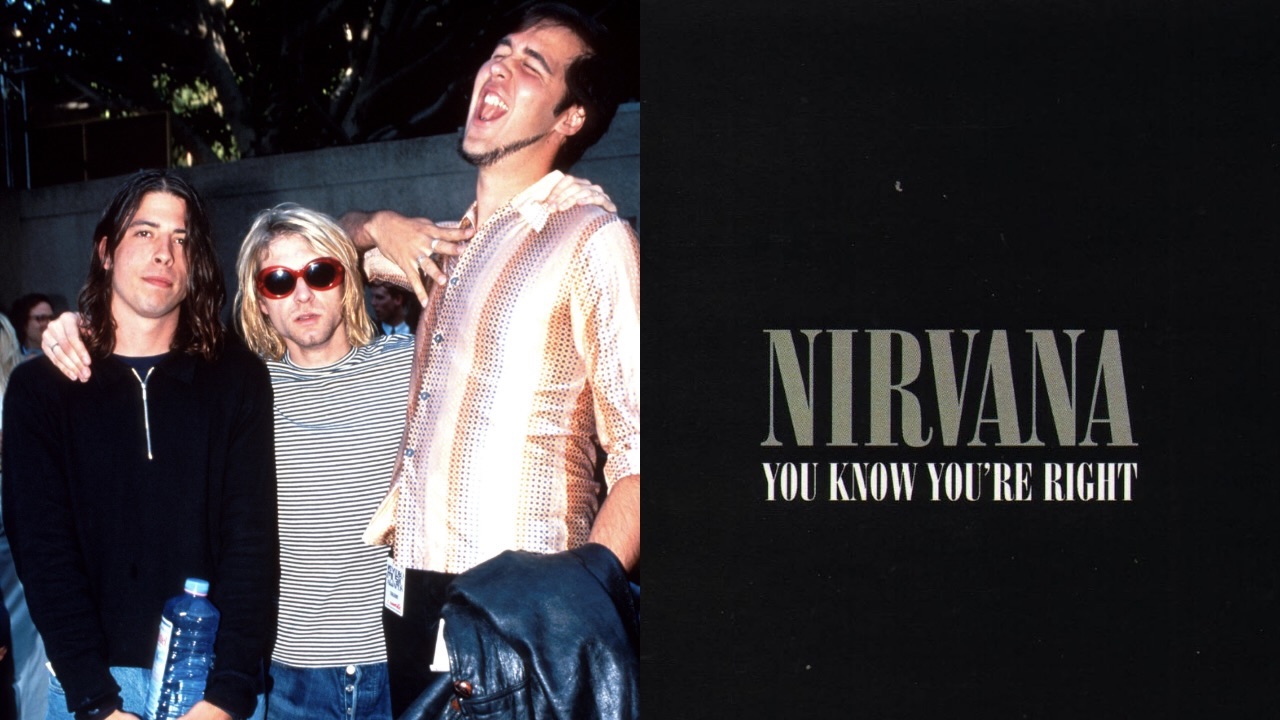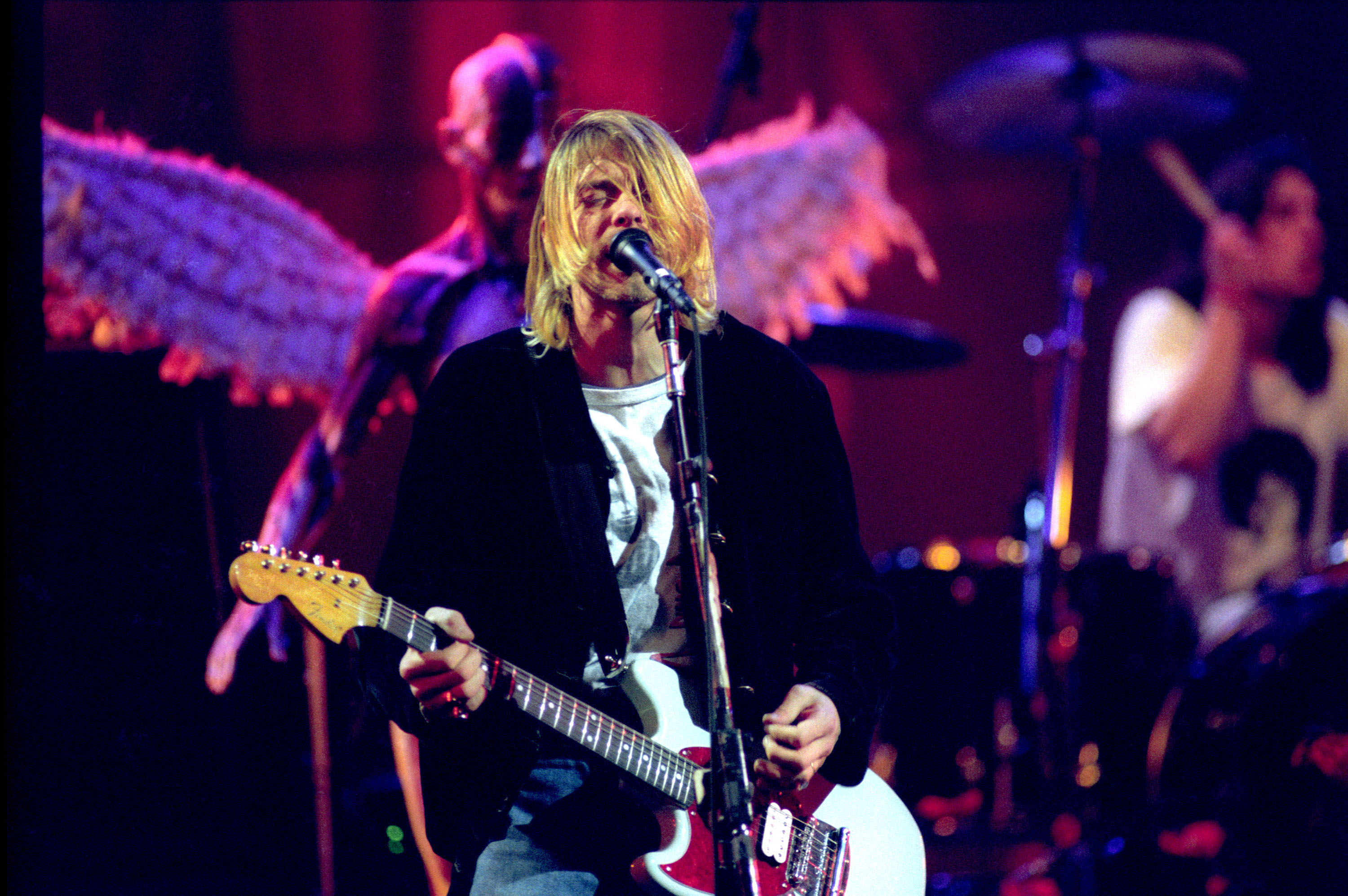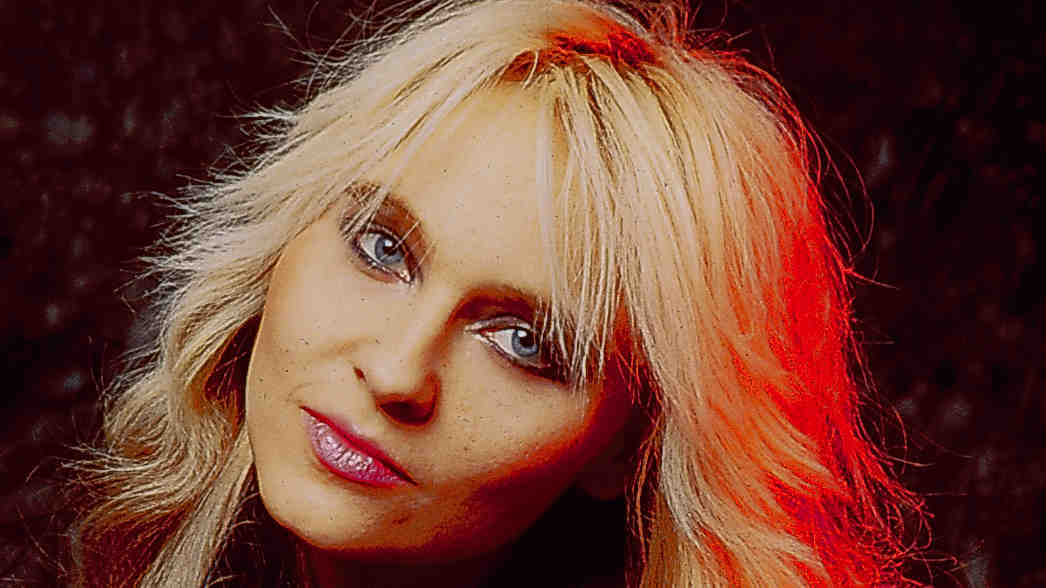“Oh God, it’s hard to listen to”: The story behind Nirvana’s final song, You Know You’re Right
On January 30, 1994, Nirvana entered the studio for the last time. The sole song the trio taped that day would become the most controversial recording of their career

On Valentine’s Day, 1995, Hole taped an Unplugged session for MTV at the Brooklyn Academy of Music in New York. The band’s set-list on the night drew largely from the group’s superb second studio album Live Through This, incorporating three of its four singles - Miss World, Softer, Softest and Doll Parts - and also included a clutch of covers, among them Duran Duran’s Hungry Like The Wolf, Donovan’s Season Of The Witch and The Crystals’ He Hit Me (And It Felt Like A Kiss), which Courtney Love introduced on the night as “a really sick song”, and later mockingly described as a “nice feminist anthem.”
Against the express wishes of her bandmates, Love also found space in Hole's set for two songs written by her late husband, Nirvana frontman Kurt Cobain, who had died by suicide the previous spring.
The first of these, Old Age, Nirvana demoed in 1991, before Cobain gifted the song to Love, who recorded it for Hole’s 1993 EP Beautiful Son. The second song, listed as You’ve Got No Right on Hole’s Unplugged album, was actually titled You Know You’re Right, and is significant for being the last song Nirvana ever recorded, Kurt Cobain’s swan song. It would become the centre-piece of a bitter, nasty war of words and a fiercely-contested legal battle between Love and her late husband’s former bandmates Kris Novoselic and Dave Grohl before it finally made its way into the public domain. Grohl would later describe it as "beautiful and disturbing."
"Oh God, it’s hard to listen to,” he admitted in 2017. “It was not a pleasant time for the band. Kurt was unwell… He was in a place we may not have recognised."

Located 10 minutes away from Dave Grohl's former home in Seattle, from the outside, with its red brick walls, arched doorways and slanted red slate roofs, Robert Lang Studios resembles an enchanted castle. Making a three-day booking for Nirvana at the facility for January 28-30, 1994, the group's management hoped that the trio could recapture some of the magic they'd bottled during their highly-focussed In Utero sessions with Steve Albini at Pachyderm Studios in Minnesota 11 months earlier. But the vibe in the Nirvana camp was very different as the new year dawned.
"1994 was a bad year right out of the gate,’ Dave Grohl told this writer in 2009. "Things had changed a lot. Kurt had struggled through a lot of stuff and we were trying to come to terms with being this enormous band, I guess."
The year started with Kurt Cobain on the cover of Rolling Stone magazine. In an emotional interview, he addressed the nature of fame, marriage and fatherhood, spoke of his ongoing battle with addiction and discussed the future of his band with disarming honesty. He acknowledged that his drug use had caused schisms in the Nirvana camp and openly shared his belief that the trio were "stuck in a rut", creatively.
That Dave Grohl and Krist Novoselic barely batted an eyelid when Cobain failed to show up to the studio on January 28 or 29 tells its own story: Nirvana's rhythm section kept themselves busy by working on some Dave Grohl originals, including a clutch of songs which would eventually appear on the first two Foo Fighters records.
On the afternoon of January 30 Cobain finally dropped by, minus his guitar, and the trio began to knock into shape a song they'd played just once before, with alternate lyrics, on October 23, sandwiched between Smells Like Teen Spirit and All Apologies, as the penultimate song of their regular In Utero set, at the Aragon Ballroom in Chicago.
The group tracked one satisfactory take of the song before breaking for dinner, and discussed returning to the studio after their scheduled European arena tour to complete the recording. Ultimately, they would not have the opportunity to do so.
That the surviving members of Nirvana and Kurt Cobain's widow had divergent views in regards to You Know You're Right became apparent in 2001 after Courtney Love filed a suit against Grohl, Novoselic and the group’s record label, the Universal Music Group, in an attempt to wrestle control of Nirvana’s master tapes.
Although both parties were agreed that the song should be released, exactly how You Know You’re Right should appear was a source of contention. While Grohl and Novoselic believed it would be best showcased as part of a Nirvana box set, Love argued that the track should take pride of place on a more commercially enticing single-disc ‘greatest hits’ compilation. "All parties believe," Love's lawsuit stated, "that the recording, which has never before been released, has the potential to be a significant hit."
Protracted arguments over the track's future escalated to the point where, onstage with the Foo Fighters in Ireland in the summer of 2002, Dave Grohl, by reputation 'The Nicest Man In Rock', referred to Love as "an ugly fucking bitch."
"There are times when you’re pissed off," he admitted to this writer two months later. "It’s inevitable that there’ll be days you feel like you want to pop. It happens to the lawyers, it happens to Courtney, and it happens to Krist and I. I’ve been pretty reserved about my feelings towards all of this for years, but it popped out of my mouth a few times. You know, it’s only natural for someone to get to their boiling point."
"But this lawsuit is not the end of the world to me,’ he insisted. "Fortunately I have something now that’s productive and positive."
The dispute ended with a whisper rather than a scream. After months of wrangling - and a hastily shut-down online leak - it was agreed that You Know You’re Right would be included on a single-disc compilation of Nirvana songs, simply titled Nirvana, while Kurt Cobain’s solo acoustic demo of the track would be featured on 2004's expansive With the Lights Out box set.
A 'best of' collection in all but name, Nirvana was released in the United Kingdom on October 28, 2002, and subsequently debuted on the UK album chart at number 1. By coincidence, the album that it displaced at the top of the chart was Foo Fighters’ fourth record, One by One.
In 2017, in an interview with The Guardian, Dave Grohl shared his feelings towards the song, which he admitted he hadn't listened to for 10 years.
"You look back on it and you read it through a different lens," he said. "Lyrically, it’s heartbreaking... Musically, there’s something cathartic."
"I don’t think he [Kurt] was comfortable in the place that he was at the time,” Grohl added. “I don’t know if anybody was. But his experience was much different. I used to think it sounded like he was singing the chorus. Now I listen to it and it’s like he’s wailing."
The latest news, features and interviews direct to your inbox, from the global home of alternative music.
This feature contains excerpts from the revised 2021 edition of This Is A Call: The Life and Times of Dave Grohl.

A music writer since 1993, formerly Editor of Kerrang! and Planet Rock magazine (RIP), Paul Brannigan is a Contributing Editor to Louder. Having previously written books on Lemmy, Dave Grohl (the Sunday Times best-seller This Is A Call) and Metallica (Birth School Metallica Death, co-authored with Ian Winwood), his Eddie Van Halen biography (Eruption in the UK, Unchained in the US) emerged in 2021. He has written for Rolling Stone, Mojo and Q, hung out with Fugazi at Dischord House, flown on Ozzy Osbourne's private jet, played Angus Young's Gibson SG, and interviewed everyone from Aerosmith and Beastie Boys to Young Gods and ZZ Top. Born in the North of Ireland, Brannigan lives in North London and supports The Arsenal.
